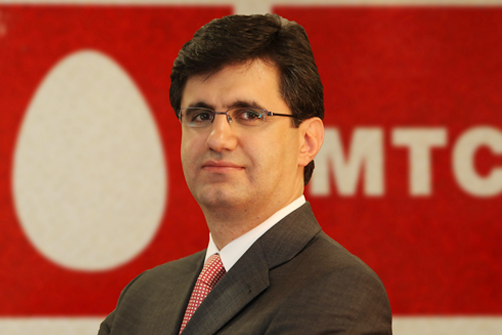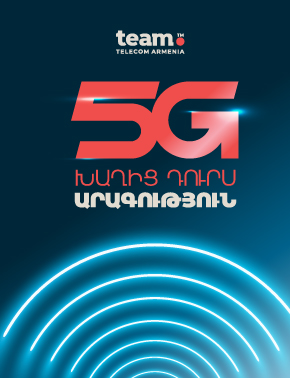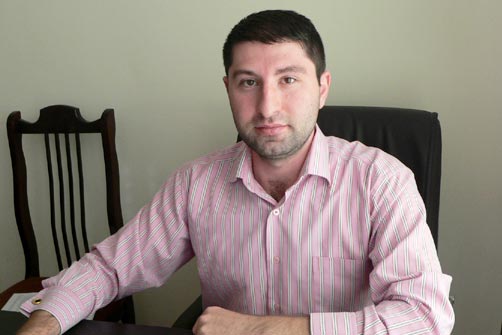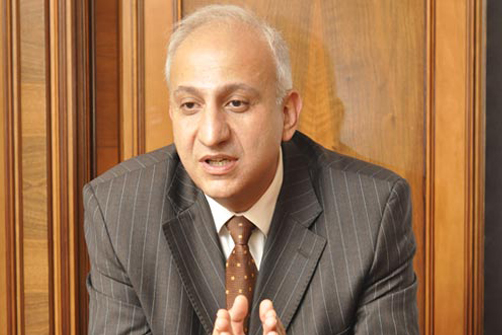-

VivaCell-MTS General Manager Ralph Yirikian
10:34 | 18.11.10 | Interviews | exclusive 11292
“Armenia to become one of the top ten countries in the world to launch LTE network”
Interview with VivaCell-MTS General Manager Ralph Yirikian to Mediamax Agency and Itel.am portal
- When was the decision made to introduce 4G network in Armenia on the basis of LTE technology? What works have already been implemented?
- The idea of venturing in this direction goes back to early 2009 when we discussed our business plan and strategy for 2010. In November, 2009 serious work was put on track - we launched search for convenient suppliers and allocation of frequencies, as this is a a new technology and can only operate within limited frequencies.
Given the fact that at present there are 3 to 4 suppliers who produce this technology, we carried out tough and constructive negotiations with them. As a result, relevant agreements were signed with Ericsson and Huawei Companies. Losing no time and in parallel the working team progressed in developing the programs and the construction of the stations was launched.
- When will physical introduction of 4G network take place?
- We will initially launch the network within the small center of Yerevan. Next year we will expand the coverage all over Yerevan. After which we will reach for the marzes where most likely, the network will initially be introduced in Vanadzor and Gyumri towns, and then we will work on covering other towns and villages, and that following the example of spreading the 3rd generation network (3G).
We currently have 540 3G base stations, and by that we are the leader in Armenia in terms of 3G network covering 94% of the populated territories of the country, or more than 650 populated settlements. Moreover we are aiming at having the 4G network radio coverage and availability as wide as the 3G network.
The work is on a fast mode to launch 4G network by early December. At the first stage, the network capacities will be offered free of charge in order to test the network. Subscribers will be enabled to independently test this state of the art completely new technology, not only new in Armenia but as well in the world. We care to provide our subscribers with the opportunity to test the network before launching it commercially.
LTE technology has a number of peculiarities. Commercially it is only launched in very few countries. We are proud to say that Armenia will be one of the first ten countries to launch this network.
That being said, we had the decided not limit ourselves only to testing, like many operators might do: we decided to immediately equip the network and introduce the 4G to the market. So the name of our country will be voiced next to countries, such as the USA, Sweden, Norway and other developed countries.
By the way, in July, 2010, MTS group launched 4G network in a pilot mode in Uzbekistan. However, I should repeat that in Armenia we intend to launch the network immediately in commercial mode.
There’s a tendency to think that LTE is just about speed, but that misses half of the equation. Speed goes up dramatically - by a factor of 10 over our 3G networks - but equally important is that latency drops by more than half. According to the assessment of the suppliers, download speed may reach 150Mbps, and upload speed – up to 50Mbps. These are, of course, theoretical capacities. In reality, download speed may range from 10 to 50Mbps, and upload – within the range of 5-10Mbps. It is obvious that 4G fundamentally differs from the speeds and capacities of 3G.
- What investments are necessary for construction of 4G network? How much has already been invested and what volume of investments will yet be made in this project?
- We are sparing no financial or human resource efforts to have our 4G network properly launched. That of course will lead to almost double the investment in 2011 comparing to 2010. Being Armenia’s leading mobile operator on more than one level namely the number of subscribers, number of base stations, capacity of the stations, quality of service, we will never yield our position, we will strive to even do better.
- Can one state that Armenia will become a certain “testing ground” for MTS Group in terms of 4G introduction?
- Yes, and not only for MTS Group, but also for the relevant suppliers. They always follow the process of activities, test, revise, and develop technologies and software support.
- According to you, are the subscribers ready to “digest” this new technology taking into account the fact that 3G network is quite new? What percentage of subscribers will be ready to use the capacities of the new network?
- A leader is the one who dares to change and to introduce this change. VivaCell-MTS wants Armenia to be the best and to have all the opportunities and technologies.
Today we have the network of the second generation, which functions on 900MHz and 1800 MHz frequencies, and the network of third generation, which functions on 2100MHz frequency. The fourth layer, which is in process of construction, is fully independent from the previous ones, having a number of opportunities and peculiarities. For us it is a new technology. And one of the reasons for launching it in test mode is to feel the subscribers’ interest in it. I want to remind that, as compared to 3G network, these technologies are not yet strongly spread in the international market. Our duty as a leader is to avail this technology and top put it in the palm of our subscribers as an option for them to chose.
- Introduction of 4G network is another proof of the trend that competition among operators shifts from voice services to the sphere of data transfer. This is a world trend. And what is the situation in Armenia? Can one state that the market of voice services is practically saturated and does not have big prospects for growth?
- The market of voice services is practically saturated. Although each company works on replenishing its voice services to better appeal to the market. Now the struggle is in the market of data transfer. And this direction is developing fast worldwide.
It is a mere fact that the share of voice services as to profitability will be larger, as compared to the share of data transfer service and that at least on the short term. On the international level, there are larger investments put in place in terms of expensive equipment and network construction to better exploit the data transfer resources, which means that data transfer services are not profitable in a short-term prospect: technologies change every 1-5 years, and there is the necessity to making new investments in order to purchase new equipment. Regardless of cost and efforts to be deployed VivaCell-MTS is committed to provide its subscribers with the best experience on all levels.

17:29 | 24.09.25 | Articles
Jacopo Losso on Cross-Border Investments and Why Armenia Attracts Angels








